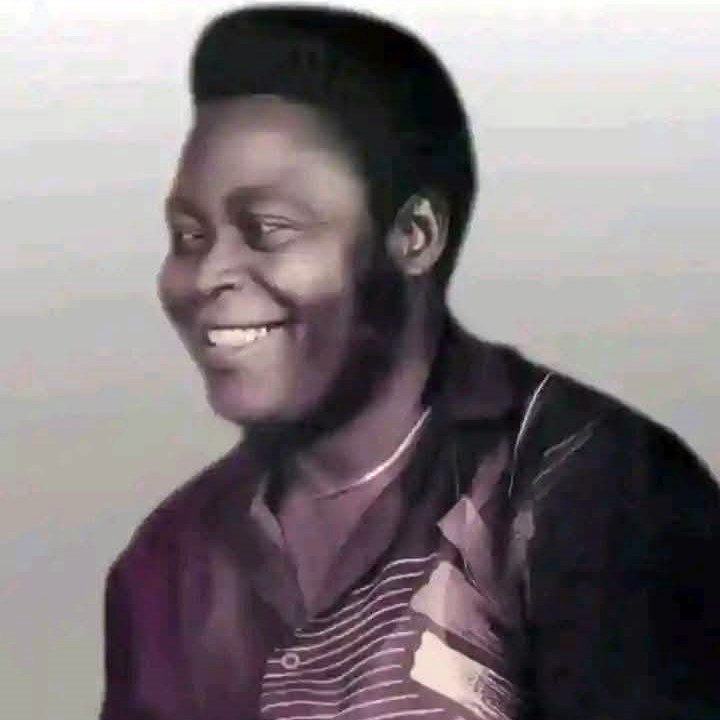A Titan of Owigiri and Ijaw Culture
Born on September 25, 1943, into the Ebizimor and Adamagu families of Angalabiri (Bayelsa) and Ojobo (Delta), Robert Ebizimor’s early years were marked by hardship. Orphaned in childhood, he eked out a living tapping palm wine, fishing, and lumbering—labor that honed his resilience long before he discovered his gift for music. Despite these challenges, he pursued formal education at Local Authority Primary School (Angalabiri), Secondary Modern School (Patani), and later the College of Arts and Science, Rumola, Port Harcourt.
From Village Celebrations to National Fame
In the 1960s, Robert—soon known simply as Ebizimor—began performing at local ceremonies, mastering xylophone, drums, keyboard, and guitar. Inspired by greats like Isondu Isoukiri, Prof. Isaac Koroware Belemo, and Rex Jim Lawson, he refined his sound amid the joyous and mournful gatherings of his community. By the early 1970s, his band, Robert Ebizimor & Izon Brothers Dance Band, burst onto the national stage. Their 1973 smash “Afalua” announced a fresh voice in highlife, and Ebizimor’s output soon exceeded 250 albums and some 500 original compositions.
The Owigiri Revolution
Ebizimor didn’t just play music—he crafted a new genre. Fusing highlife, juju, Afrobeat, reggae, and traditional Ijaw rhythms, he forged Owigiri into a vessel for cultural pride and social critique. Singing primarily in Izon (with touches of Pidgin and English), his lyrics tackled love, destiny, political self-determination, and the wrongs of society.
Mentor and Cultural Philosopher
As leader and lead vocalist of a dozen-member ensemble, Ebizimor nurtured a generation of Ijaw musicians who carried Owigiri’s torch forward. His outfit subsequently produced a number of artists of Owigiri fame, such as Bestman Doupere, S. Eseiduo, King Pere Freetown, Anthony Cockson, Agheotu Teiyebo, Abraham Young, Melenge, Azene Micah, Enuye Egholi, Shadrach Osuwa, Fred Izinebi, Odi Phne, Michael Marcus, Eniekunumu Fred, Barrister Smooth, Princess Diana, Shop Atei, and Johnson Mirin. He distilled his worldview into guiding mantras: Bibobraism (“destiny through work”) and Nanaowei-Oborism (“humans are subject to divine will”). His songs doubled as social manifestos, championing justice, equity, and Ijaw cultural renaissance.
Honors, Titles, and Public Service
Bestowed with the honorifics Doctor and Chief, Robert Ebizimor held chieftaincy titles such as Num Pere I of Izon, Beniafa Timi Eyi dou Eriowei I, and Egberi Gbapamo Owei I. He earned “Foremost Izon Musician” from the Ijaw Cultural Association and “Numa Kpeti of Izon Ibe” from MOSIEND Youth Organization. In 1981, Governor Melford Okilo appointed him to the Rivers State Utilities Board and Electricity & Water Commission. Later, he served as Senior Special Assistant on Culture and Ijaw National Affairs under Governor Seriake Dickson and chaired Bayelsa’s PMAN chapter.
Oru-Polo Nightsclub: Where Owigiri Took Flight
One of Ebizimor’s favorite stages was the legendary Oru-Polo Nightclub along Harold Wilson Drive in Port Harcourt, Rivers State. Every weekend, he and fellow luminaries would ignite the crowd with raw Owigiri beats, enchanting night crawlers and Ijaw families alike. Those electrifying evenings didn’t just keep the city dancing until dawn; they sent the vibrant rhythms and dances of Ijaw culture rippling around the world. Offstage, Robert lived by the traditions he sang about—embracing polygamy and weaving a rich, extended family into the very fabric of his royal and musical legacy.
Final Journey and Everlasting Legacy
On July 31, 2014, Ebizimor’s life was cut short in a tragic car accident on the Effurun–Warri highway. The Bayelsa State Government honored him with a state funeral on November 7, 2014, and declared July 31 each year as Ijaw Musical and Cultural Day. Today, his profound blend of musical innovation, philosophical depth, and cultural advocacy places him among Nigeria’s folk legends—alongside Rex Lawson, Fela Kuti, and Mamman Shata—ensuring that the rhythms and messages of King Dr. Robert Ebizimor continue to inspire across generations.
Select Discography
Cornerstone Hits
- Afalua
- Papa Money No Be Your Own
- Bibobara
Additional Notable Tracks
- Helen
- Path Finder
- Na Who Be First Lady
- Late Ebakpa
- Special
- Soke Beni Oru
- Keinde Special
- Duke and Tony Special
- Nana Ogbo of Warri Corner
- King Robert Izon Keme
- Amafini Ogbo of Angalabiri
- Amassoma Ebiereu Ogbo
- Destiny
- Sighaye
- Se Teme
- Ofoni Ama Puke
- Bide Olotu
- Late Friday Afeni Yea
- Expo 2000
- Ebiri
- Selefabo Binafa
- Atu Ka Atu
Each track weaves Ijaw tradition, social commentary, and melodic innovation, forming the rich tapestry of Owigiri that defines Ebizimor’s enduring legacy.



